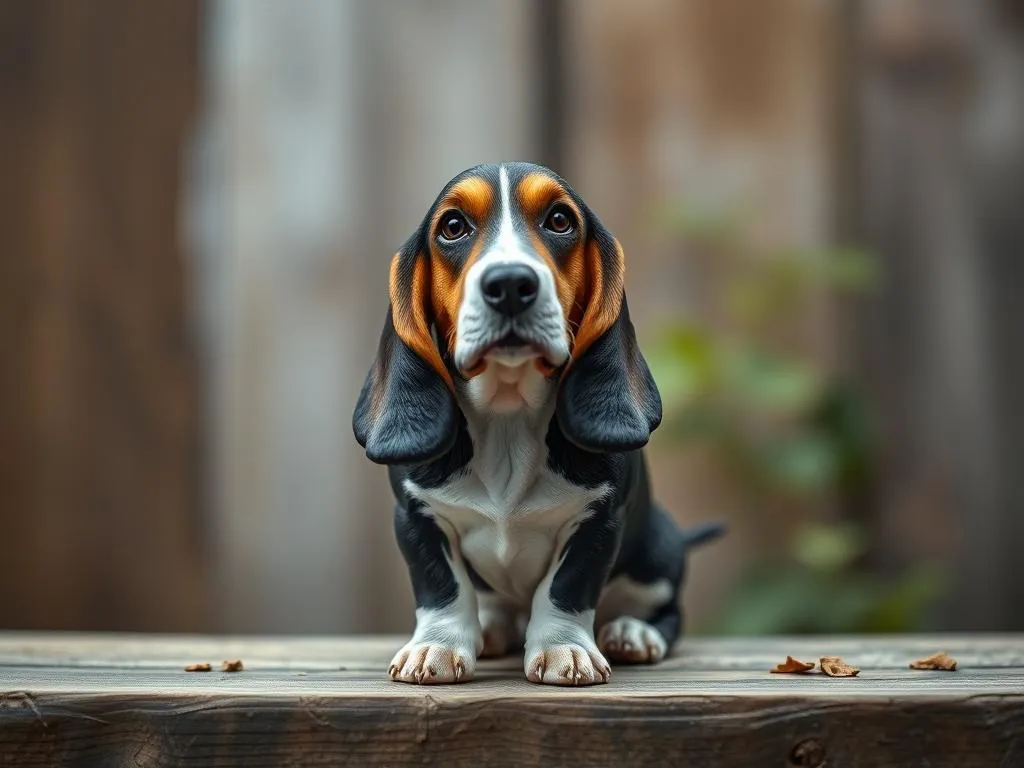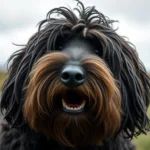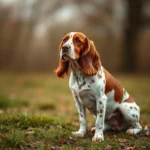
Introduction
Dogs come in all shapes, sizes, and personalities. With hundreds of recognized breeds, each has unique characteristics and histories that make them special. Understanding these differences is crucial for anyone considering adding a furry friend to their family. One breed that captures the hearts of many is the Miniature Basset Hound. This charming dog is a smaller version of the traditional Basset Hound, offering all the beloved traits of its larger counterpart but in a more compact size.
The Miniature Basset Hound is characterized by its short legs, long body, and distinctive droopy ears, making it an adorable addition to any home. This article delves into the world of the Miniature Basset Hound, exploring its history, characteristics, care requirements, and training needs.
Understanding Dog Breeds
What is a Dog Breed?
A dog breed is a specific variety of domesticated dog, selected and bred for certain characteristics, appearance, and behaviors. Breeds have been developed over centuries through selective breeding for various purposes, including companionship, work, and hunting. Understanding these classifications is not just an academic exercise; it helps potential dog owners know what to expect in terms of temperament, care needs, and overall compatibility with their lifestyle.
Historically, dog breeding dates back to ancient civilizations when early humans began to domesticate wolves. Over time, these animals were bred for specific roles, leading to the diverse array of breeds we see today.
How Breeds are Classified
Dog breeds are primarily classified into groups based on their purpose, appearance, and behavior. Common classifications include:
- Sporting Dogs: Bred for hunting and retrieving game.
- Working Dogs: Used for tasks such as guarding, pulling sleds, or rescue work.
- Hound Dogs: Bred for hunting, known for their keen sense of smell and stamina.
- Terriers: Originally bred to hunt vermin, known for their feisty and energetic nature.
- Toy Breeds: Companion dogs that are small and often favored for their affectionate nature.
Each classification helps potential dog owners understand the breed’s inherent traits and requirements. The Miniature Basset Hound, for instance, falls under the hound category, known for its tracking abilities and friendly disposition.
Overview of the Basset Hound
History of the Basset Hound
The Basset Hound’s origins can be traced back to France, where it was bred for hunting small game such as rabbits and hares. Its name derives from the French word “bas,” meaning low, which refers to its short stature. The breed gained popularity in the 19th century and was recognized by kennel clubs, including the American Kennel Club (AKC) in 1916.
The Miniature Basset Hound is a smaller variant that has emerged from selective breeding practices aimed at creating a compact version of the standard breed, without sacrificing the Basset’s unique traits.
Standard vs. Miniature Basset Hound
The primary difference between the standard and Miniature Basset Hound is size. While a standard Basset Hound typically weighs between 50 to 65 pounds, the miniature version weighs around 30 to 40 pounds. This size difference makes the Miniature Basset Hound more suitable for apartment living and families with smaller spaces.
Despite their size difference, both types share similar temperaments and appearances, characterized by their droopy ears, long bodies, and a friendly demeanor. Both are excellent companions, but the miniature version offers a more manageable size for some households.
Miniature Basset Hound Characteristics
Physical Traits
The Miniature Basset Hound exhibits several striking physical traits:
- Size and Weight: Typically stands about 10 to 12 inches tall at the shoulder and weighs between 30 to 40 pounds.
- Coat Types and Colors: They have a short, dense coat that comes in various colors, including tri-color (black, white, and brown), lemon (light tan and white), and red and white.
- Distinctive Features: Their long, droopy ears and expressive eyes are hallmark features, along with their elongated bodies and short legs that give them a charming, unique appearance.
Temperament and Behavior
The Miniature Basset Hound is known for its friendly and gentle temperament. These dogs are typically affectionate, good-natured, and highly social, making them excellent family pets. Some key personality traits include:
- Playful: They enjoy playtime and interactive games with their families.
- Laid-back: Generally calm and relaxed, they are great companions for both active and quieter households.
- Affectionate: These dogs thrive on closeness with their human family members and often seek out cuddles.
Socialization is essential for these dogs, as early exposure to different environments, people, and other pets can lead to a well-adjusted adult dog.
Health Considerations
While the Miniature Basset Hound is generally healthy, they are prone to certain health issues, including:
- Obesity: Due to their love of food and lower activity levels, maintaining a healthy diet is crucial.
- Hip Dysplasia: A genetic condition affecting the hip joints, leading to discomfort and mobility issues.
- Ear Infections: Their long ears can trap moisture, making regular ear care essential.
The average lifespan of a Miniature Basset Hound is around 10 to 12 years, depending on genetics, care, and overall health.
Caring for a Miniature Basset Hound
Nutrition and Diet
Proper nutrition is vital for the health and well-being of your Miniature Basset Hound. Owners should consider the following dietary needs:
- High-quality dog food: Choose a well-balanced commercial diet that meets the nutritional needs of small to medium breeds.
- Feeding schedule: Adult dogs typically require two meals a day, while puppies may need three to four smaller meals.
- Portion sizes: Follow the feeding guidelines provided on the dog food package, adjusting as necessary based on your dog’s weight and activity level.
Exercise Requirements
Despite their shorter legs, Miniature Basset Hounds are active and require regular exercise to maintain a healthy weight. Recommended activities include:
- Daily walks: Aim for at least 30 minutes of walking each day.
- Playtime: Engage in interactive games like fetch or tug-of-war to keep them active and entertained.
- Mental stimulation: Puzzle toys and training sessions can provide valuable mental exercise.
Grooming and Maintenance
Grooming is an essential part of caring for a Miniature Basset Hound. Key grooming tasks include:
- Coat care: Brush their coat weekly to remove loose hair and dirt.
- Bathing: Bathe them as needed, typically every few months or when they become particularly dirty.
- Ear care: Regularly check and clean their ears to prevent infections, using a veterinarian-recommended solution.
Training a Miniature Basset Hound
Basic Training Techniques
Training your Miniature Basset Hound is crucial for ensuring good behavior and a strong bond between you and your pet. Consider the following tips:
- House training: Start house training early, using consistent cues and a designated bathroom spot outdoors.
- Commands and obedience training: Use positive reinforcement techniques, such as treats and praise, to teach basic commands like sit, stay, and come.
Socialization Skills
Early socialization is key for a well-rounded Miniature Basset Hound. Techniques include:
- Exposure to different environments: Take your dog to various places to experience new sights, sounds, and smells.
- Interaction with other pets and people: Arrange playdates with other dogs and introduce them to different people to build confidence.
Behavioral Issues
While Miniature Basset Hounds are generally well-mannered, some common behavioral issues may arise, including stubbornness or separation anxiety. Solutions include:
- Consistent training: Reinforce commands and expectations consistently to reduce stubborn behavior.
- Gradual desensitization: Help your dog adjust to being alone by gradually increasing the time spent apart.
Choosing a Miniature Basset Hound
Where to Find a Miniature Basset Hound
When looking for a Miniature Basset Hound, prospective owners have several options:
- Reputable breeders: Look for breeders with a good reputation, ensuring they prioritize health and temperament in their breeding programs.
- Adoption: Consider adopting from shelters or breed-specific rescues, giving a deserving dog a forever home.
What to Look For
When selecting a Miniature Basset Hound, consider the following:
- Health screenings: Inquire about health testing for common breed-specific issues, such as hip dysplasia.
- Questions for breeders or shelters: Ask about the dog’s temperament, socialization history, and any known health concerns.
Preparing Your Home
Before bringing a Miniature Basset Hound home, ensure you are prepared:
- Essentials: Stock up on food, toys, a comfortable bed, and grooming supplies.
- Safety measures: Pet-proof your home by removing hazards, securing trash cans, and ensuring that cords and small objects are out of reach.
Conclusion
The Miniature Basset Hound is a delightful breed, known for its friendly temperament, unique appearance, and lovable nature. With proper care, training, and socialization, these dogs can make wonderful companions for families and individuals alike. Understanding their characteristics and needs is vital for responsible ownership. If you’re considering adding a dog to your family, the Miniature Basset Hound may be the perfect fit for you. Their charming personality and affectionate nature will undoubtedly enrich your life.









